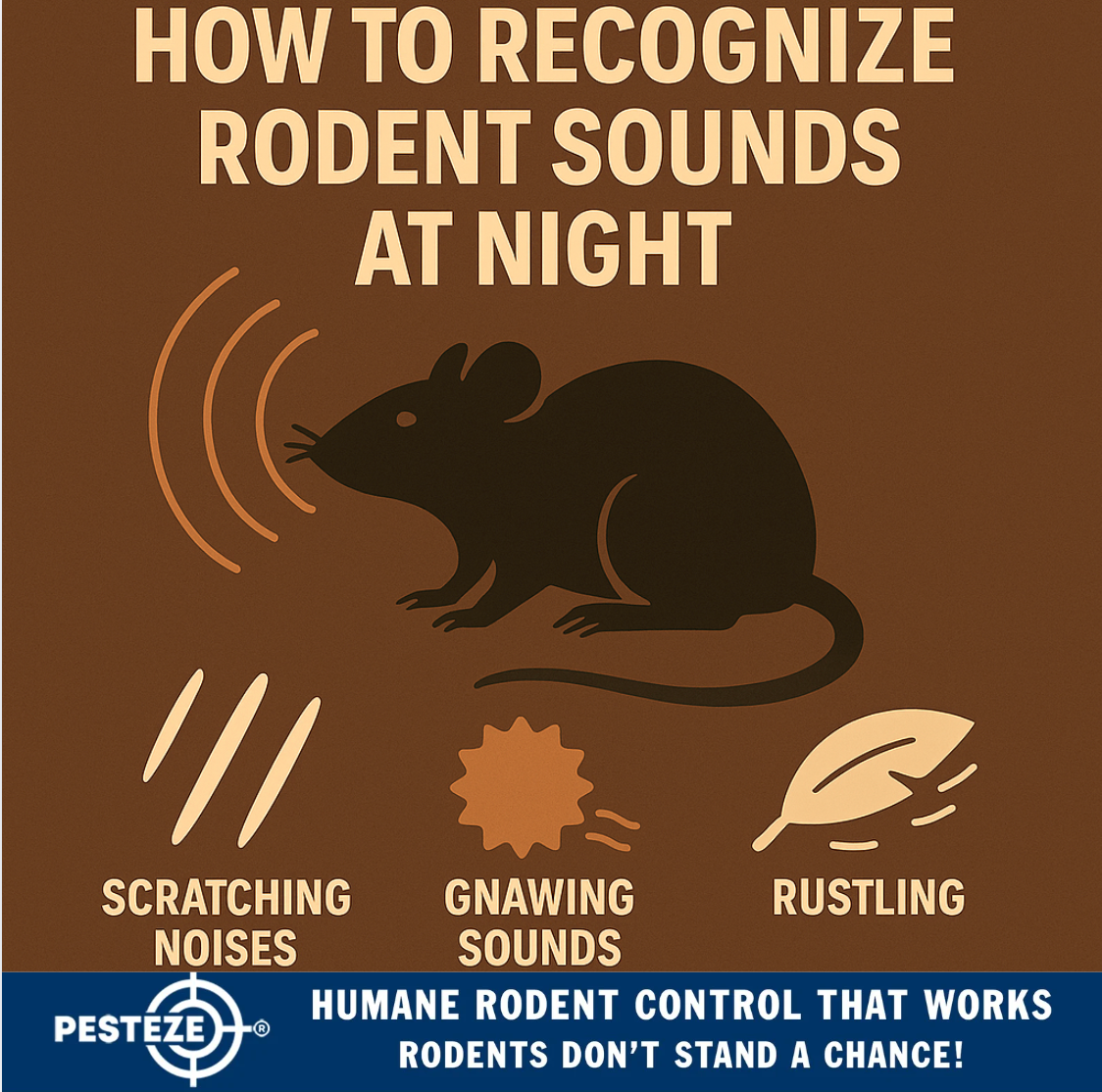HOW TO RECOGNIZE RODENT SOUNDS AT NIGHT

HOW TO RECOGNIZE RODENT SOUNDS AT NIGHT
SUMMARY
Rodents are nocturnal creatures, and one of the first signs of infestation is the unusual sounds they make at night. Learn how to identify these noises to take action early.
FEATURES
-
Scratching Noises: Rodents claw at walls, ceilings, and floors.
-
Gnawing Sounds: Constant chewing on wood, wires, or plastic.
-
Scurrying Feet: Light, quick running inside walls or attics.
-
Squeaks and Chirps: High-pitched communication between rodents.
-
Rustling: Movement through insulation, paper, or stored food.
-
Patterns: Activity peaks at night when rodents are most active.
DESCRIPTION
Rodents are highly active at night, and the sounds they make can be the earliest indicator of an infestation. One of the most common noises homeowners report is scratching. This comes from rodents using their claws to climb walls, dig into insulation, or move through hidden spaces. If these sounds seem to come from walls or ceilings during quiet nighttime hours, rodents are a likely cause.
Gnawing is another giveaway. Rodents’ teeth grow continuously, so they must chew on hard materials such as wood, plastic, or even wiring. The repetitive grinding or crunching sounds, especially late at night, often point to mice or rats in your home.
You may also hear scurrying—tiny feet running quickly across floors, in attics, or behind walls. This sound can be subtle but becomes more noticeable in silent nighttime environments. Alongside movement, rodents also squeak or chirp to communicate, particularly when nesting or interacting with other rodents.
Rustling noises in pantries, garages, or storage areas are another sign, as rodents search through bags, boxes, or insulation for nesting materials and food. Importantly, these sounds follow a pattern: rodents are most active after dark, so recurring nighttime noises strongly suggest their presence.
Recognizing these sounds early allows homeowners to act before infestations grow. Proper inspections, sealing entry points, and using traps can prevent small issues from escalating into major damage. Listening carefully at night may be the key to identifying rodents before seeing them.
- Saharsh Bansal


Comments 0